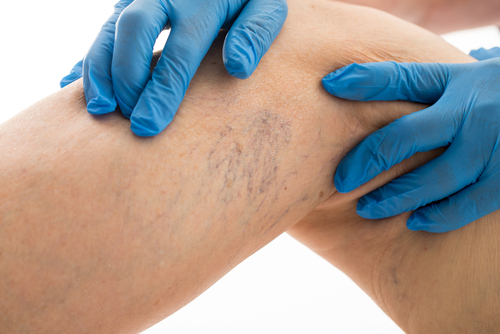Cardiac Testing at The Cardiovascular Specialists in South Florida
The human heart is a muscular organ that pumps blood through the whole system of a human being by blood vessels of the circulatory system. Many people might suffer from the health-related problem that involves their heart without knowing because of the lack of a regular checkup; if they had tested regularly, they would have known what they were dealing with.
Cardiac Testing
Also known as screening examinations, these are taken to determine or find a disease before the symptoms become manifest in an individual. A cardiac screening aims to detect potential illness as early as possible at its early stage so that treatment can be undertaken to cure it before it becomes critical.
Screening tests might include the test for blood and other fluids, genetic tests in nature to serve as a marker for an inherited case, and imaging that produces a picture of the inside of the human body. All of this is available to the general public at the cardiovascular specialists in South Florida. However, there are instances where tests performed are based on various factors such as age, gender, and family history. Here are the critical screening tests for monitoring your cardiovascular health.
• Body Weight
Your body mass index(BMI) would be calculated using your waist circumference. These measurements would determine if you are at healthy body weight and composition. Being obese would put you at a higher risk for health problems.
• Blood Pressure
Considered one of the essential screenings, having high blood pressure increases your chance of getting heart disease or a stroke. So getting yourself checked regularly would enable you to control what could befall you if detected at an early stage.
• Cholesterol
It would help if you have a test taken every four to six years to measure your total cholesterol; this would enable you to control it better, in the case where it is high, like blood pressure.
• Blood Glucose
High blood glucose puts you at the risk of developing diabetes (type 2), and if this is not treated, it could lead to serious medical problems, including stroke and heart disease. So maintaining an adequate glucose level wouldn’t put you at the risk of contact.
Apart from all of the screenings mentioned above, there are tests performed at the cardiovascular specialist in South Florida to diagnose heart conditions. We talk about them below.
Echocardiogram
An echocardiogram, also called an echo, is a heart scan by ultrasound, which uses a high-frequency sound wave to form an image of the heart from the sounds emanating. A painless procedure, when being performed, we would have a jelly applied to your bare chest, and then an experienced operator would hover about your chest to get a good look at the heart. This scan is used to check the size of your heart, how well your heart muscle contracts and relax, and how well your valves work.
From the checks that would be carried out using the echocardiogram scan, it would help us to detect:
- Any damage caused by a heart attack, where blood stopped to pump due to a blockage.
- Congenital heart diseases
- A failure of the heart
- Any problem that may have occurred with the heart valves that control blood flow in the heart.
- And lastly, if there was an infection of the heart valves.
After the result gotten from the scan is analyzed, we would discuss it with you.
Electrocardiogram
It is a test that records the electrical activity of the heart. It reflects what happens in different heart areas and helps identify whatever problem you might have with your heartbeat or rhythm. This test will be required if we think you have a problem with your heart, including your GP. The test is used to investigate a possible heart problem, such as palpitations of the heart, chest pain, and shortness of breath. This test would help us detect:
- Coronary heart disease; which happens when the heart’s blood supply is blocked by a buildup of waxy, fatty substances.
- Where the heart’s walls become thickened or enlarged, a condition that is known as cardiomyopathy.
- A heart attack, in the case where the supply of blood to the heart is suddenly blocked.
- And arrhythmias; a situation where the heart beats too slow, quick, or without a regular pattern.
Holter Monitor Testing
A Holter monitor test would be carried out to observe if you have cardiac irregularities. The monitor takes about 15 minutes to get hooked up. However, it would need to be worn to monitor your heart rhythm for about 24 hours or more. The information obtained from this test would be used to figure out if you have a heart rhythm problem. The test would be carried out to confirm or detect any irregularities the electrocardiogram might have missed out because of the short period you would be hooked up to the machine.
Cardiovascular Stress Test
This test would be carried out to determine your cardiovascular health status. The test records the heart rate, blood pressure, oxygen intake, and other factors. At the same time, you experience heart stimulation through a strenuous exercise in an environment controlled by us.
Venous Insufficiency Testing
The veins are susceptible to various disorders, including varicose veins, spider veins, and chronic venous insufficiency(CVI). To get an accurate diagnosis of your situation, a test would need to be taken to begin a proper treatment or control this. This test would involve us doing a physical examination and discussing your medical history with duplex ultrasound to assess your legs’ blood circulation. Following this test, we would discuss with you what procedures will best treat your condition.
Why you should consider Cardiac testing
According to the National Health Institute, the leading cause of death in the United States is a kind of heart disease known as coronary heart disease. Out of all the various kinds of heart disease, this is the most common among the population and a significant cause of heart attack.
According to the National Health Institute, coronary heart disease is caused by the buildup of waxy substance inside the lining of larger coronary arteries. This buildup could block the blood flow in one of the heart’s arteries; this blockage could eventually lead to a heart attack, myocardial infarction.
If you have heart disease symptoms such as shortness of breath while breathing, irregular heartbeats, and chest pain, you should see a cardiologist to perform a heart screening for you. Not to be caught unaware, it would be ideal that you do a screening to lower the risk of a possible disease, especially the most common amongst the population, coronary artery disease.
To lower the risk of getting this, you would have to manage health behaviors and risk factors, such as physical activity, diet quality, body mass index, blood pressure, total cholesterol, etc.
Summary
Having cardiovascular testing done is needed to determine if you suffer from any heart conditions and to detect them in time so as to control them. If you want to carry out a cardiovascular test, you should schedule your appointment with the cardiovascular specialist of South Florida, and we would help you with the process.





